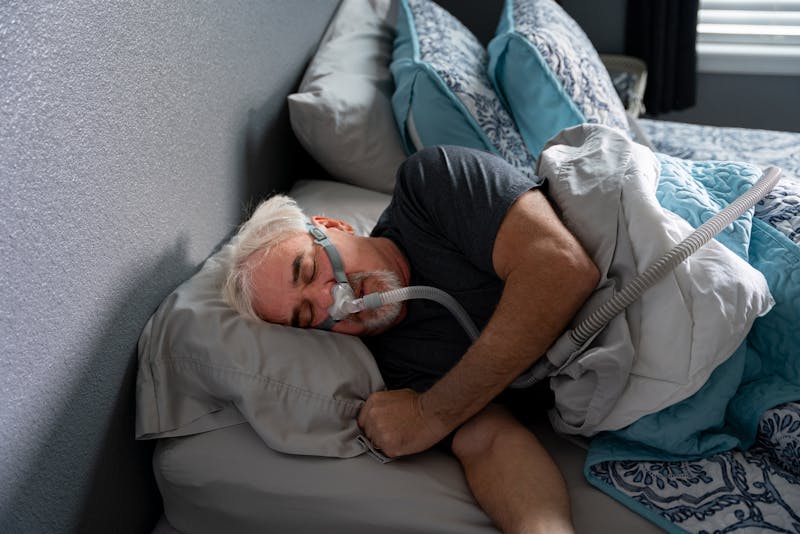
If you’ve been diagnosed with sleep apnea, you might be considering a CPAP (Continuous Positive Airway Pressure) machine to improve your breathing during sleep. However, many patients worry about the noise levels of these devices and how they might affect their quality of rest—or their partner’s.
At Southern ENT Specialists (SENT), we frequently address this concern to help patients make informed decisions about their treatment options. Let’s explore how loud sleep apnea machines are, what you can expect, and the alternatives if noise is a dealbreaker.
How Loud Are Modern Sleep Apnea Machines?
Modern CPAP machines are designed with patient comfort in mind, including reduced noise levels. On average, most CPAP machines emit sounds in the range of 25 to 30 decibels, which is equivalent to a soft whisper or the hum of a fan. For context, normal conversation is about 60 decibels, meaning CPAP machines are significantly quieter than many daily sounds.
However, noise levels can vary depending on the machine's make and model, the type of mask used, and whether there are any air leaks. At SENT, we can recommend advanced CPAP devices known for their whisper-quiet operation, ensuring that both you and your partner sleep peacefully.
What Contributes to CPAP Machine Noise?
While modern CPAP machines are generally quiet, a few factors can cause additional noise:
- Air Leaks: If the mask doesn’t fit snugly, escaping air can create a hissing sound.
- Tubing: Improperly positioned tubing can vibrate or cause subtle noise during airflow.
- Filters: A dirty or clogged filter may cause the machine to work harder, increasing noise.
- Type of Device: Older models or specific machines, such as BiPAP (Bilevel Positive Airway Pressure) devices, may produce slightly more noise.
Regular maintenance and proper setup can minimize these sounds. The specialists at Southern ENT Specialists can guide you through troubleshooting common issues to ensure your CPAP machine operates as quietly as possible.
Alternatives to CPAP Machines for Sleep Apnea
If noise from a CPAP machine is still a concern, there are alternative treatments available. At SENT, we offer a variety of options tailored to your specific needs:
- Inspire Therapy: A small, implantable device that delivers gentle nerve stimulation to keep your airway open during sleep. It’s completely silent, making it an excellent alternative for patients sensitive to noise.
- Oral Appliance Therapy: A custom-fitted mouthguard worn during sleep to keep your airway open. This non-invasive option is noise-free and easy to use.
- Surgical Solutions: Procedures like Uvulopalatopharyngoplasty (UPPP) or Hyoid Advancement can address anatomical issues contributing to sleep apnea, eliminating the need for a CPAP machine altogether.
Tips for Managing CPAP Noise
If you choose a CPAP machine but want to minimize its noise:
- Invest in a Quiet Machine: Ask the team at SENT about the quietest CPAP models on the market.
- Use White Noise: A white noise machine or app can mask the sound of your CPAP and create a more restful sleep environment.
- Ensure Proper Fit: Regular adjustments to your mask and tubing can prevent air leaks that lead to extra noise.
Rest Easy with Help from SENT
At Southern ENT Specialists (SENT), we’re committed to helping you find the right sleep apnea treatment so you can enjoy uninterrupted, restorative sleep. Whether you’re concerned about CPAP noise or exploring alternative options, our experienced team of ENT doctors will guide you every step of the way.
Call one of our six convenient locations or book an appointment online today to discuss your sleep apnea treatment options. With SENT, restful, peaceful sleep is within reach.
